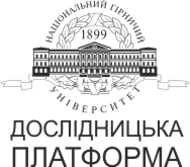№79-14
Management of construction waste generated by military actions: analysis and solutions
L. Dadiverina1, D. Laukhin1, О. Hryhoriev1, O. Khalymendyk1,V. Bondarenko2
1Dnipro University of Technology, Dnipro, Ukraine
2LLC Budivnyk VV, Dnipro, Ukraine
Coll.res.pap.nat.min.univ. 2024, 79:163–174
Full text (PDF)
https://doi.org/10.33271/crpnmu/79.163
ABSTRACT
Purpose. To improve the existing system for managing construction waste generated due to the damage (destruction) of buildings and structures as a result of hostilities, with the aim of developing a long-term, comprehensive strategy for construction waste management, taking into account current conditions and challenges.
The methods. An analysis of the main problems and methods of construction waste management in Ukraine was conducted, highlighting the advantages and disadvantages. A construction waste management scheme was developed; a SWOT analysis (Strengths Weakness Opportunity Threats) of waste management in the Dnipropetrovsk region was carried out, taking into account regional specifics.
Results. An analysis of the problems of effective construction waste management allowed us to identify comprehensive actions and outline the main ways to improve the effective management of construction waste generated due to the damage (destruction) of buildings and structures, taking into account the experience of other countries and the specifics of the situation that has developed in Ukraine as a result of hostilities.
The originality. The processing of construction waste has significant internal potential for expanding the use of recycled materials in Ukraine. Construction waste management can solve not only environmental problems but also become a source of efficient use of available resources, open up new opportunities for business, create a market for secondary building materials, and contribute to the transition to a circular economy.
Practical implementation. Integration into a new unified innovative system involves solving a whole range of issues and problems related to the need to improve methods of managing construction waste generated due to the damage (destruction) of buildings and structures as a result of hostilities. This will allow the development of a transparent legislative and legal framework, create an effective market for secondary building materials, rationally use available resources, solve important environmental problems, and implement large-scale restoration projects based on the principles of a circular economy.
Keywords: construction waste management, recycling, processing technology.
References
1. Pereroblennia budivelnykh vidkhodiv: vyklyky ta mozhlyvosti dlia Ukrainy (2024, hruden, 16). Ukrainske natsionalne informatsiine ahentstvo «Ukrinform». https://www.ukrinform.ua/rubric-technology/3826490-pereroblenna-budivelnih-vidhodiv-vikliki-ta-mozlivosti-dla-ukraini.html.
2. Cook, E., Velis, C. A., & Black, L. (2022). Construction and Demolition Waste Management: A Systematic Scoping Review of Risks to Occupational and Public Health. Frontiers in Sustainability, 3, 1–34. https://doi.org/10.3389/frsus.2022.924926
3. Pryblyzno 10–12 milioniv ton smittia utvorylosia v Ukraini vnaslidok viiny (2023, cherven, 20). Radio Svoboda. https://www.radiosvoboda.org/a/news-ukraina-viynasmittia-dov- killia/32467305.html.
4. Satin, I., Panchenko, O., Fliashovskyi, V. (2024). Metodychni rekomendatsii shchodo tsinky obsiahiv vidkhodiv vid ruinuvan. (O. Koltyk, Red.). Hromadska orhanizatsiia «RESINK». http://surl.li/ykvbvs.
5. Budivelne smittia: vyrishennia problemy zalezhyt vid politychnoi voli ta hotovnosti vprovadzhuvaty reformy (2023, kviten 20). b2b-vydanniaProperty Times. https://propertytimes.com.ua/spetsproekti/budivelne_smittya_virishennya_problemi_zalezhit_vid_politichnoyi_voli_ta_gotovnosti_vprovadzhuvati_reformi.
6. Shuvaiev, A. A. (2021). Instrumentarii zaluchennia vidkhodiv budivnytstva ta znosu do povtornoho hospodarskoho tsyklu v konteksti klasyfikatsiinykh oznak. International scientific journal «Grail of Science», 10, 600–605. https://doi.org/10.36074/grail-of-science.19.11.2021.114
7. Shpakova, H. (2020). Formation of economic and management development predictors on the innovation platform of construction waste recycling. Efektyvna Ekonomika, 1. https://doi.org/10.32702/2307-2105-2020.1.91
8. Trehub, O. (2023). Pravovi aspekty upravlinnia vidkhodamy vid ruinuvannia budivel ta sporud, shcho utvoriuiutsia vnaslidok boiovykh dii. Law. State. Technology, 4, 16–22. https://doi.org/10.32782/LST/2023-4-3.
9. Fisunenko, P.A., & Herasymova, O.L. (2022). Napriamy zmenshennia ryzykiv voiennoho ekotsydu za dopomohoiu retsy klinhu budivelnykh vidkhodiv v developmenti nerukhomosti. Ekonomika ta suspilstvo, 45. https://doi.org/10.32782/2524-0072/2022-45-41
10. Koltyk, O. (2024, 14 travnia). Vidkhody vid ruinuvan: resurs chy hory smittia. Ekonomichna pravda. https://www.epravda.com.ua/columns/2024/05/14/713619/ .
11. Poriadok upravlinnia vidkhodamy, shcho utvorylys u zv’iazku z poshkodzhenniam (ruinuvanniam) budivel ta sporud vnaslidok boiovykh dii, terorystychnykh aktiv, dyversii abo provedenniam robit z likvidatsii yikh naslidkiv. Postanova Kabinetu Ministriv Ukrainy № 1073 (2022). (Ukraina). https://zakon.rada.gov.ua/laws/show/1073-2022-%D0%BF#Text
12. Pro upravlinnia vidkhodamy. Zakon Ukrainy № 2320-IX (2022). (Ukraina). https://zakon.rada.gov.ua/laws/show/2320-20#Text
13. Yak vykorystovuiut vidkhody vid ruinatsii v krainakh svitu? (2022, veresen, 6). ECOBUSINESS. Ekolohiia pidpryiemstva. https://ecolog-ua.com/news/yak-vykorystovuyut-vidhody-vid-ruynaciyi-v-krayinah-svitu.
14. Durr, J. F. W., Hagedorn-Hansen, D., & Oosthuizen, G. A. (2017). Waste to Resource Process Chain Strategies for Global Manufacturers. Procedia Manufacturing, 8, 595–602. https://doi.org/10.1016/j.promfg.2017.02.076
15. Mozhlyvosti pererobky budivelnykh vidkhodiv vid ruinuvan. (2024, veresnia, 24). BDO v Ukraini. https://www.bdo.ua/uk-ua/insights-2/information-materials/2024/opportunities-for-recycling-construction-waste-from-devastation.
16. Rehionalnyi plan upravlinnia vidkhodamy u Dnipropetrovskii oblasti do 2030 roku. (2024). Dnipropetrovska oblasna Rada.https://dniprorada.gov.ua/upload/editor/regionalnij_plan_upravlinnya_vidhodami_u_dnipropetrovskij_oblasti_do_2030_roku-_stisla_versiya.pdf
17. Fedorova, Kh. (2024, lypen). Shcho z biznesom? Korotko pro stan ekonomiky ta kompanii na lypen 2024. KyivstarBusinessHUB. https://hub.kyivstar.ua/articles/shho-z-biznesom-korotko-pro-stan-ekonomiki-ta-kompanij-na-lipen-2024




